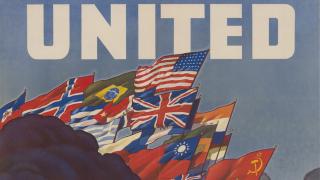
Subject Area
Positioning in International Organisations and Conflicts
Recent research on the history of international organisations and the reordering of the world after the »great«—hot and cold—wars of the 20th century have expanded both the long-dominating focus on the bipolarity of the East-West conflict and the traditionally state-centred perspective. Increasingly, questions about the concerns, positioning and spheres of agency of actors from across the world, as well as their numerous national, state, political and professional affiliations, are taking centre stage.
It is within this framework that this subject area studies the broad spectrum of East European participation in international and regional organisations, which from the late 19th century had developed into both hubs for interactions as well as central arenas for regulating cross-border problems and conflict constellations. Examining new global entanglements in the wake of international conflicts, this thematic area also investigates what East European expertise developed which enabled to address the global nature of regional problems and what capacities of reading globality could be accessed in solving them in supra-regional manners.
Research Subjects
Affinities to Putin's Russia in East-Central Europe
Following geopolitical developments in Eastern Europe - like the annexation of Crimea in 2014 – different attitudes towards the Russian Federation can be observed. The project aims to investigate the relationship of the Visegrad societies with Putin's Russia as result of socio-historical processes, current national interests, and changes in domestic political landscape.
Citizenship in the Border Regions of the Russian Empire
This project examines the introduction of Russian citizenship politics in the provinces (oblasts) of Kars and Batum, granted to Russia through the Treaty of Berlin. On the one hand, it studies how different religious and ethnic groups dealt with this shift and the Russian administration; on the other, it examines how transregional and transimperial connections and mobilities shaped the Russian governance’s functioning.
Comecon and the Global Economic Order
This section examines the European Comecon states’ economic relations to countries of the Global South, East-European companies’ operations in the European and global transportation markets as well as the political and scientific efforts to alter the global economic order.
Eastern Europe’s Turns and Shifts in Attempts at New Global Alignments
These researches aim at reconstructing and explaining how the upheavals observable in Eastern Europe in the century following World War I—from the post-imperial turn, followed by a Communist shift, to the post-socialist turn, followed by a populist shift—shaped attempts at politically realigning the world.
Expertise in the International Sphere
Under this thematic focus Polish experts are examined who held key positions in the administrations of the League of Nations and the United Nations and coupled these with their (trans-)regional connections to pursue alternative political agendas which aimed at reshaping international politics.

